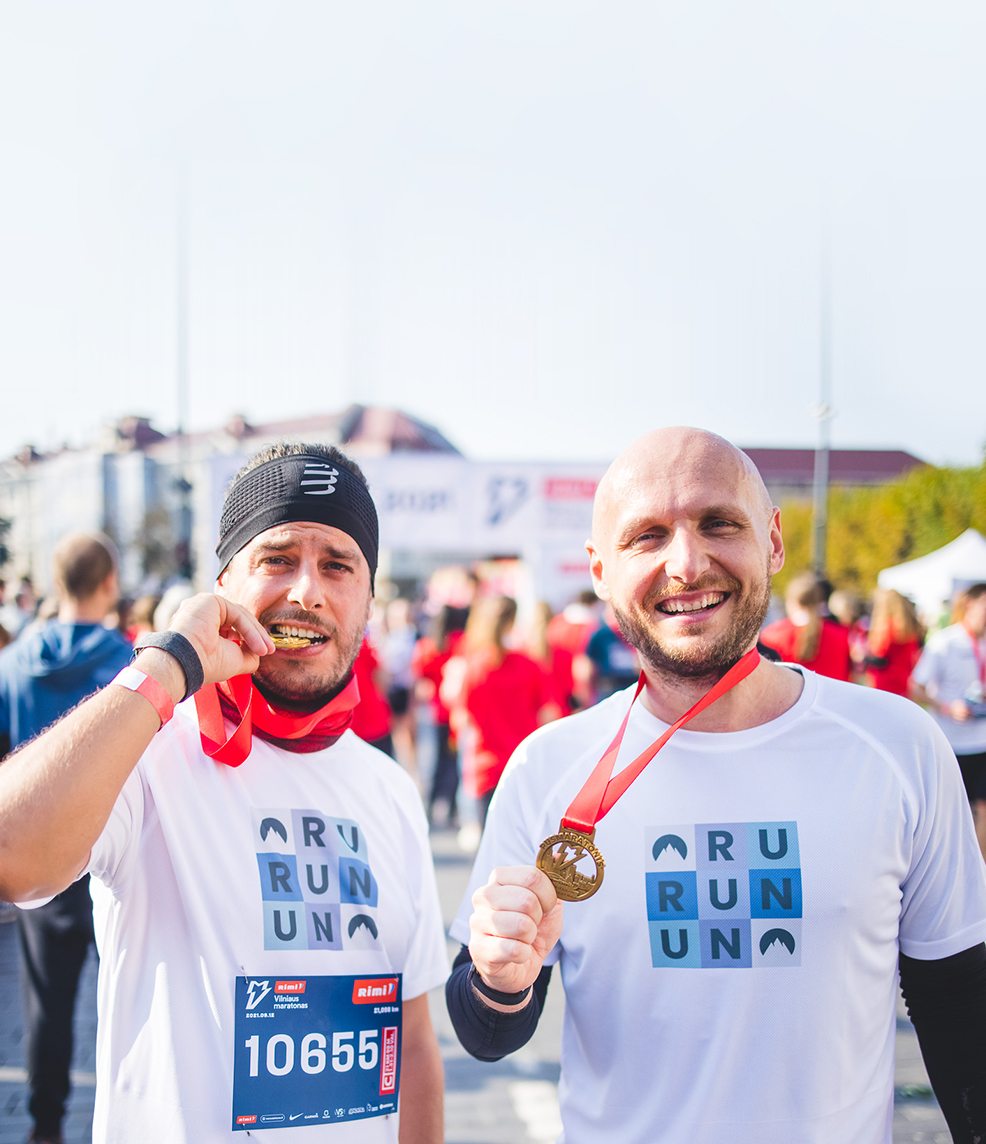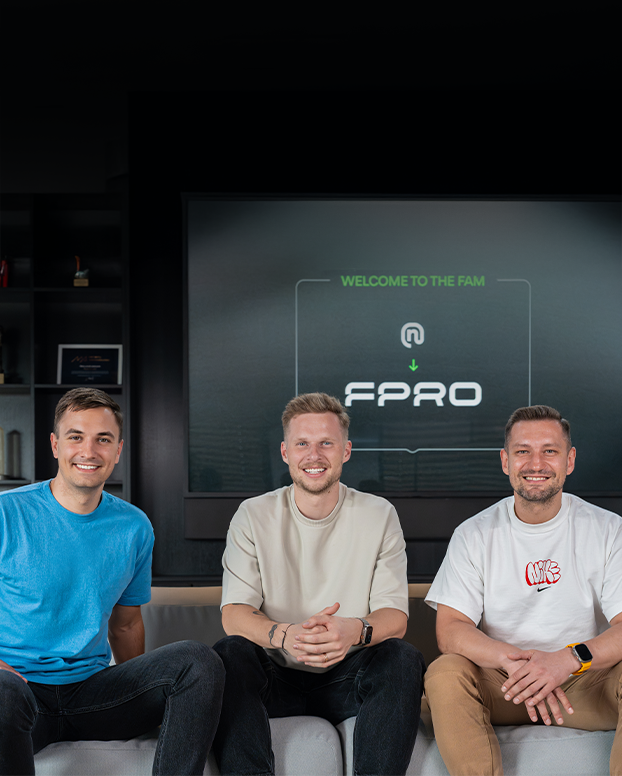
Why mentorship matters for young entrepreneurs + tips from a unicorn co-founder
March 8, 2023•6 mins read
Making the right decisions as a young entrepreneur is tough. The reason why is elegantly simple – you don’t yet know what you don’t know.
And here’s the sucker punch. Once you have made a decision, will the right doors open so you can put it into action? The answer is … maybe?
These challenges are fundamental to a young entrepreneur’s success or failure. Choose the wrong direction and you’re doomed from the off. And even if you choose wisely, if you fail to execute then you are also in trouble.
The good news is, there is someone who can solve both these problems for you – a mentor.
Mentorship is at the heart of how Tesonet works. So, who better to speak to on this subject than Nord Security and Tesonet co-founder, Eimantas Sabaliauskas. We caught up with Eimantas to hear his thoughts on why mentorship matters so much for young co-founders, and how to get it right.
A solution to critical problems for new founders
“A mentor figure is not some silver bullet that will help you solve all your problems,” Eimantas points out. “But more often than not, they have faced the same challenges and can show you a less complicated road.”
The benefits a mentor can bring include immersive learning, cost savings, win-win business development relationships, and improved morale and mental resilience. Let’s take a deeper look at some of these benefits.
A tailored and immersive way to learn and develop
Entrepreneur’s have plenty of learning tools available: business school, courses, books and personal study. But, according to Eimantas, mentors have some significant advantages over these formats.
“It isn’t easy to classify exactly what you will learn from your mentors,” he says. “But you can be sure that you will receive advice that will be personalized and tailored to your specific market.”
With accelerators like Tesonet, mentorship will also involve a lot of learning by doing. “We often mentor our startup partners by onboarding their teams within our own premises,” Eimantas explains. “Sometimes we set half of the mentee’s startup team to work in our HQ for half a year. And sometimes we hire talents and train them before sending them to the startup. The effect this has is a sort of sensory overload of entrepreneurship lessons for the mentee and their team.”
Networks that bring exposure, cost-savings, and connections
“A mentor’s network can help by opening previously closed doors,” says Eimantas. “They might even reveal some doors that you didn’t even know existed.”
One such ‘door’ is access to media outlets and other mouthpieces. “We had several cases when startups struggled to get attention from major tech publishing groups. When we put the founders in a room with the publishers, or introduced them at a conference, the situation changed.”
Avoiding paying over the odds for tools and services is another major benefit. “We often help startups negotiate with various providers (business tools, SaaS solutions, marketing agencies). Having been partners for a long time, we have more weight in these negotiations.”
Finally, young entrepreneurs can form win-win partnerships when they have a mentor to unlock them. “A mentor’s network can help to increase an entrepreneur’s presence and confidence, and help them form synergetic connections.”
A role model that boosts confidence and mental resilience
Perhaps the least tangible benefits a young entrepreneur can gain mentorship are the psychological ones. But that does not mean these benefits are not hugely important.
When faced with the inevitable challenges life as an entrepreneur brings, being able to talk to someone who has been in a similar position is a support help, says Eimantas.
“Seeing a live example of someone who has repeatedly pushed through those same challenges makes new startup founders realize there is nothing uniquely troubling or special in their situation,” he explains. “If we (their mentors) have already overcome those challenges, it means it’s well within their reach too.”
Some mentors will actively walk their mentees through the decision-making process to help them gain a more balanced perspective on the risks involved. “I often invite founders to go through a thought experiment.. They list all the possible outcomes of a particular decision they are afraid to make. In 99% of cases, it becomes apparent that even the worst-case scenario would only impede their process for a day, a week, or a month – but not more.”
How to find the right mentor for you
“Broadly speaking, there are two approaches to choosing a mentor,” says Eimantas. “You can find a good match through mentorship platforms. In such a case, you will get a professional mentor with substantial know-how working within an organized system.”
“Another kind is the more experienced business people you meet in the wild,” Eimantas continues. “They might have relevant experience in your market or simply know what your next steps should be. But at the same time, it’s a more challenging way because you’ll need to convince them to become your mentor. You could give a minimal amount of shares, and agree that the mentor eventually becomes a board member or advisor. They are then fully motivated to share their time and know-how.”
What to look for in a mentor
The final question is what should you look for in a mentor? After all, they are all individuals with their own characteristics and abilities.
First, according to Eimantas, they have to want to do it: “It’s essential that your mentor is a person who not only tends to be enthusiastic in sharing their experience, but who also sees the meaning and worth of that process.”
Second, look for a connection. “The underlying requirement is mutual chemistry and trust between the mentor and the mentee,” says Eimantas.
Finally, consider what your mentor can offer in practical terms, and how this fits your current needs. For example, Tesonet has a wide offering when it comes to practical support. “We help connect our established teams, like marketing, finance, legal, and others – and have shared strategic sessions,” explains Eimantas. “We also share our know-how, industry knowledge, and insights, whatever our partners need. This ranges from helping them connect with financial institutions regarding loans to helping them create a suitable marketing approach.”
In summary, you are aiming for a person you connect with and trust, who can offer you the practical support you need and is keen to share their know-how. Find this person and you can expect to see faster professional development, an expanded network, and a more resilient mindset.
Read more like this
-
Founders
February 2, 2026•1 min read
The Future is Fungi: The MISHKAY Story
-
Founders
November 20, 2025•1 min read
Decodo’s Next Chapter: Evolution, not revolution
-
Founders
November 27, 2024•1 min read
Oxylabs: A Startup That Redefined Lithuania’s SaaS Industry
-
Founders
October 1, 2024•3 mins read
Martynas Gudonavičius, co-founder of Trafi, becomes co-owner of Tesonet portfolio company Flanco






